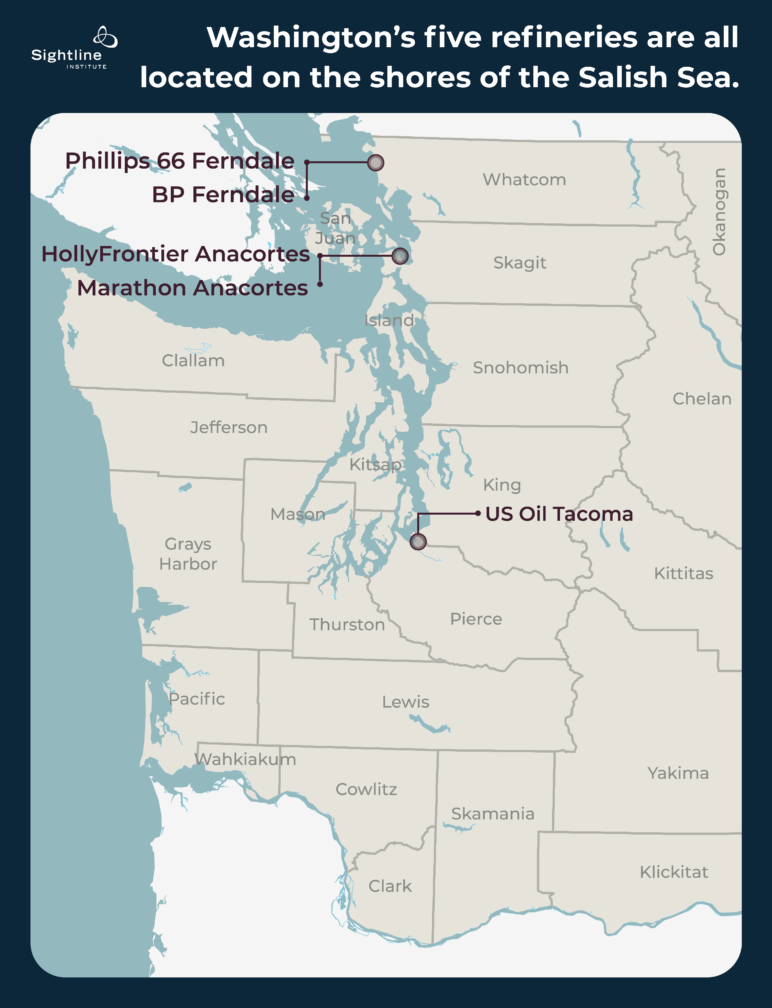A Transition Plan For Puget Sound Oil Refineries
As Cascadia works to meet its climate commitments by boosting energy efficiency, electrifying cars and trucks, and shifting to clean energy sources, oil demand will decline precipitously. But that doesn’t mean the communities and workers supporting this industry must share its fate. Instead, they have an opportunity to plan ahead for a healthier and more resilient future.
Table of Contents
It is impossible to meet our climate targets without retiring refineries.
Oil refining on Puget Sound is inextricably tied to the history of colonialism.
One bleak, one hopeful, both dependent on our choices today.
The refining industry pays surprisingly little in taxes considering its massive profits.
Refinery workers are well compensated and clustered in Whatcom and Skagit counties.
Refinery air and water pollution negatively impacts human health and local fauna.
Every transportation method carries the risk of environmentally catastrophic oil spills.
Every transportation method carries the risk of environmentally catastrophic oil spills.
A transition model for communities like Anacortes, Ferndale, and Tacoma.
Whatcom and Skagit leaders can help their communities plan the futures they want.
This series lays out the facts about Washington’s oil refining industry, including:
- Its colonial history, growth, and geography in the Puget Sound region;
- Its workforce and tax revenue figures at state and local levels;
- Its public health and pollution costs, particularly on neighboring Lummi, Swinomish, and Puyallup Tribes; and
- Its pipeline rupture, fire, and explosion risks.
What emerges is a picture of a precarious, costly industry both in decline and out of step with the priorities of Washingtonians. What also emerges is the chance for local leaders, refinery workers, Tribes, and communities to lead a powerful transition plan for their future—one that is more resilient to global market shocks, ensures good-paying jobs for Washingtonians, protects clean air and water, honors their climate commitments, respects Tribal rights and traditions, and ensures access to affordable energy for all.



